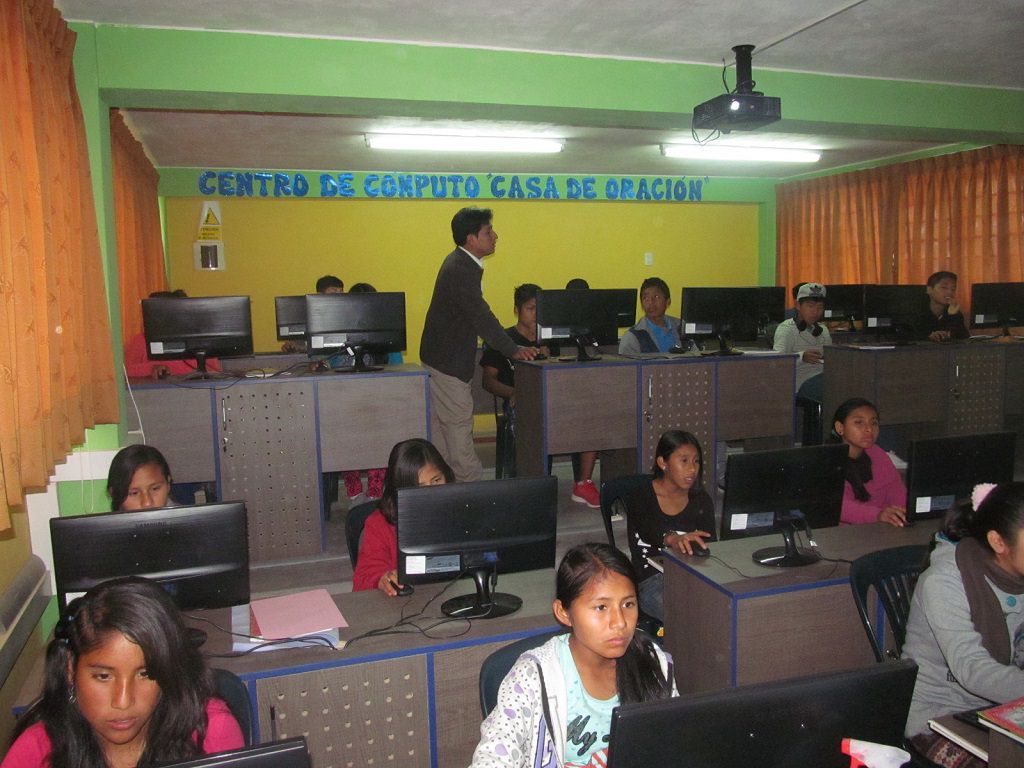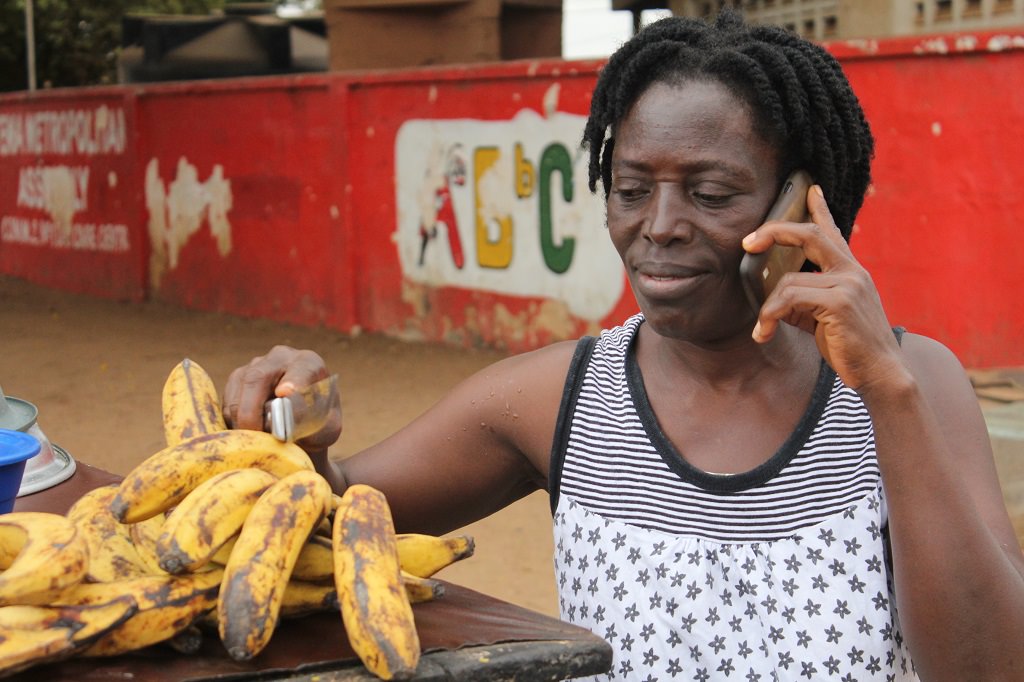Reading ‘Facebook’, ‘computer’, ‘internet’ or ‘television’ in a letter from your sponsored child might prompt you to think, ‘Do they really need my support if they can afford these luxury items?
But the simple fact is that mobile phones and other technology aren’t luxury items. They’re essential tools for development, education—and, sometimes, survival.
Mobile phones
We all appreciate that a mobile phone is much more than a phone – it’s a radio, a torch, a news service, and, crucially, a device for hearing about employment opportunities. Farmers can use mobile phones to gain access to market prices, ensuring they are being compensated appropriately for their produce. They can use their mobile phone to keep an eye on weather conditions so they can plant and harvest their produce at the right time.
Innovations like Kenya M-PESA, which helps mobile phone owners easily and securely send money, are significant. Similarly, the UN’s World Food Programme uses text messages to alert affected people about food insecurity data. In some ways, new technologies, especially mobile technologies, are progressing faster in lower and middle-income countries, and they’re allowing people to do business more safely and efficiently. And with companies offering prepaid SIM cards with relatively cheap pay-as-you-go rates, they are also cost-effective to use.
Without landlines, emergency lines and ambulances, a mobile phone can be a life-saving alert system and access to emergency assistance from others in the community when needed.
Internet
Would you or your children be able to go about your day-to-day life and studies without internet access? Potentially, but it would be difficult. So why do we expect children living in poverty to go without access to such a versatile tool?
Many Compassion projects have computer labs with internet access. In these labs, children learn computer skills and can complete their homework – both avenues help them upskill for work in the future, which will help lift them out of poverty, which is what Compassion is all about.

While sitting in front of the television and not moving all day isn’t ideal or something we would encourage, sometimes having a television can be a good thing. For example, in dangerous areas where gang violence is an issue, and parents are unable to watch their children all the time due to working, television can be a relatively safe and educational option.
Social media
It’s hard to find people who don’t have a social media account of some sort. The same can be said of many children in Compassion’s programmes. And why not? They’re free to use and open up a world of information.
While children and teenagers in Compassion’s programmes are taught by Compassion staff not to contact their sponsor outside of Compassion’s official channels, many of them are curious and may try to find you on Facebook or some other site.
While we celebrate the deep relationships our supporters share with their sponsored children, if this happens, it’s really important that you don’t respond or accept their friend request for the protection of both you and your sponsored child.
This is to keep your personal details secure and to protect you from receiving unsolicited or inappropriate requests from members of your sponsored child’s community, who could otherwise gain access to your personal details. It’s also because outside Compassion’s communication channels and monitoring, we can’t be certain the person contacting you is your sponsored child.
In the event that this happens, please contact us and we can help you out.
If you consider the low cost of many of these technologies and the lack of other community resources we often take for granted, you can start to see how technology in middle and lower income countries can be seen as an important tool for survival.
Before assuming that your sponsored child no longer requires sponsorship as they’ve mentioned one of the above technologies, consider the various benefits. Technology, when wisely deployed, can help keep people safe, connected and informed – all important steps on the path out of poverty.
This blog was originally published by Monique Wallace from Compassion Australia and Susan Sayler from Compassion International.





